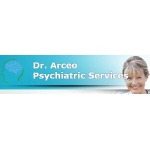Introduction
Post-Traumatic Stress Disorder (PTSD) and Tourette Syndrome are two distinct medical conditions that can significantly impact an individual's life. In this article, we will explore options for seeking treatment for these conditions, focusing on finding PTSD treatment options nearby and the different approaches to treating Tourette Syndrome.
PTSD Treatment Near Me
Post-Traumatic Stress Disorder (PTSD) is a mental health condition that can develop after experiencing a traumatic event. Its symptoms can include flashbacks, nightmares, severe anxiety, and difficulty coping with everyday life. If you or someone you know is seeking PTSD treatment, the following steps can help you find help nearby:
Consult Your Primary Care Physician: Start by discussing your symptoms with your primary care physician. They can provide an initial assessment and recommend treatment options.
Therapy: Psychotherapy is a common and effective treatment for PTSD. Look for therapists or counselors specializing in trauma or PTSD in your local area. Cognitive Behavioral Therapy (CBT) and Eye Movement Desensitization and Reprocessing (EMDR) are two evidence-based therapeutic approaches.
Medication: Medications can be prescribed to manage symptoms such as anxiety and depression. Consult a psychiatrist for medication evaluation and management.
Support Groups: Many communities have PTSD support groups where individuals can share their experiences and coping strategies. These groups provide a sense of belonging and understanding.
Telehealth Services: In recent years, telehealth services have become more accessible. You can receive therapy or counseling remotely, which may provide a convenient option if in-person treatment is not available nearby.
Treatment for Tourette Syndrome
Tourette Syndrome is a neurological condition characterized by repetitive, involuntary movements and vocalizations known as tics. While there is no cure for Tourette Syndrome, several treatment options can help manage its symptoms:
Behavioral Therapy: Behavioral interventions, such as Comprehensive Behavioral Intervention for Tics (CBIT), can teach individuals with Tourette Syndrome how to manage their tics and improve their quality of life.
Medications: Medications like antipsychotics and alpha-2 adrenergic agonists can be prescribed to help control tics. A neurologist or psychiatrist can evaluate your symptoms and determine the appropriate medication.
Deep Brain Stimulation (DBS): In severe cases where other treatments are ineffective, deep brain stimulation is an option. This involves surgically implanting electrodes in the brain to regulate neural activity.
Support and Education: Support from family, friends, and support groups is essential for individuals with Tourette Syndrome. These groups offer information, understanding, and a sense of community.
Occupational and Speech Therapy: These therapies can help individuals manage associated difficulties, such as coordination problems and social challenges.
Conclusion
Seeking treatment for PTSD or Tourette Syndrome can be a crucial step towards improving one's quality of life. Whether you're looking for PTSD treatment options nearby or exploring the various treatment approaches for Tourette Syndrome, it's essential to consult healthcare professionals who can provide guidance tailored to your specific needs. Remember that effective treatment often involves a combination of therapeutic and medical interventions, as well as support from loved ones and the community.


No comments yet